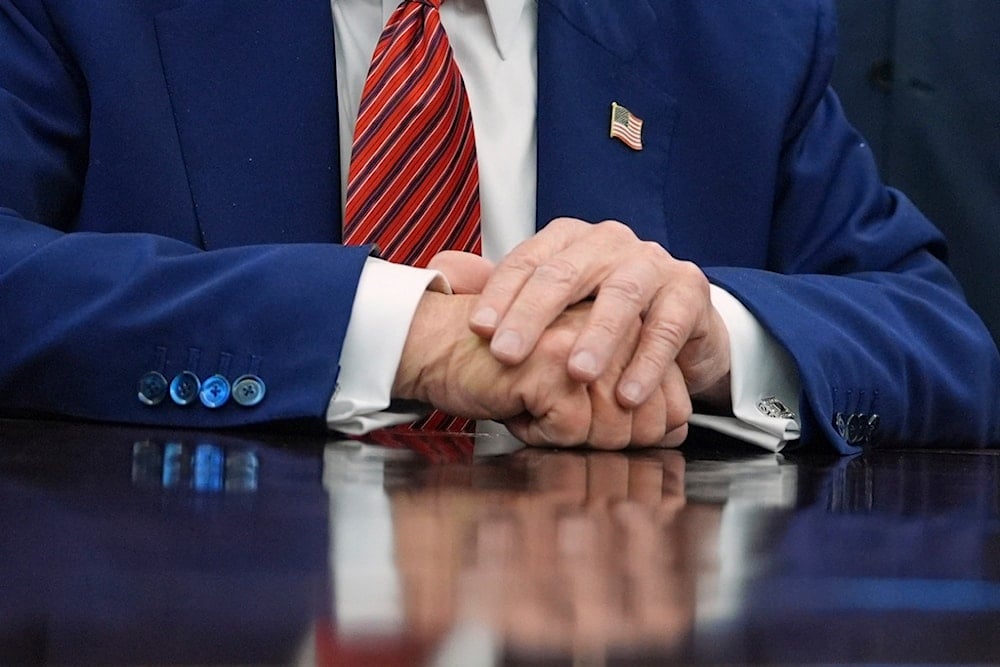EU sought ship, port, energy ties in nixed proposal to Trump: Report
"The EU is difficult to deal with and trade talks are going nowhere," Donald Trump said.
-

President Donald Trump rests his hands on the Resolute Desk as he speaks to reporters after signing executive orders regarding nuclear energy in the Oval Office of the White House, Friday, May 23, 2025, in Washington (AP Photo/Evan Vucci)
US President Donald Trump has formally rejected a far-reaching trade offer from the European Union, reiterating his plan to impose 50% tariffs on EU imports beginning June 1 and dismissing efforts by Brussels to reset the strained economic relationship.
The EU's proposal, detailed by Bloomberg and confirmed by several outlets, outlined a broad economic cooperation agenda, including joint shipbuilding projects, port infrastructure development, and a strategic energy alliance covering gas, oil, and nuclear sectors. Brussels also proposed removing industrial tariffs, easing non-tariff barriers, and expanding cooperation in AI data centers, AI chip development, 5G technologies, and economic security.
In an Oval Office address Friday, Trump dismissed the offer outright: "The EU is difficult to deal with and trade talks are going nowhere," he said. "I am not looking for a deal. I mean we've set the deal. It's at 50%... They [the EU] want to make a deal very badly. They just don't go about it right."
Tariff Standoff
The rejection comes as European leaders grow increasingly concerned about the trajectory of US-EU relations under Trump's protectionist agenda. According to Reuters and The Guardian, internal White House briefings portrayed the EU's proposal as overly bureaucratic and inadequate, fueling the administration's decision to proceed with tariffs.
Meanwhile, The Financial Times reported earlier this month that preliminary talks had resumed between Washington and Brussels, focusing on digital trade, investment flows, and supply chain resilience, a signal that the EU had been attempting to engage in meaningful negotiations before Trump's escalation.
Trump's broader trade policy shift also includes threats of a 25% tariff on all smartphones not manufactured in the US, which could severely impact global tech firms like Apple and Samsung. Speaking to reporters, Trump clarified that the tariffs would apply to "Samsung and anybody that makes that product, otherwise it wouldn't be fair."
Read more: Trump trade, debt policy fears trigger US bond market exodus: FT
Trade Fallout
The combination of these tariffs, analysts warn, could trigger widespread retaliation, disrupt global supply chains, and lead to a dramatic rise in consumer prices, particularly in tech and industrial sectors. European stock indices, including Germany's DAX and France's CAC 40, have already registered sharp losses in response to the announcements.
EU officials have not ruled out countermeasures, stressing the importance of rules-based international trade and warning that Trump's unilateral actions could unravel decades of transatlantic economic cooperation.
With the June 1 deadline drawing near and no apparent opening for renewed talks, the prospect of a major US-EU trade conflict appears imminent, one with far-reaching consequences for the global economy, multinational corporations, and geopolitical alliances alike.

 3 Min Read
3 Min Read










